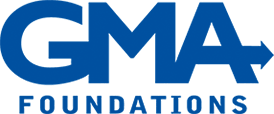
Five directors of a family fund have differing appetites for visibility in their philanthropy, particularly for grants made within their respective geographically-dispersed communities. Is it possible for some to remain anonymous and still build good relationships with their grantee organizations?
Advisor Supports Individual Preference to Remain Anonymous
Three of the adult siblings are happy, even eager, to engage with applicants and grantees through conversations and site visits that help them learn about nonprofit programs and monitor the success of grants. Two live in smaller communities, and prefer not to be widely recognized as representing a philanthropic family. In cases like theirs, a philanthropic advisor can act as a surrogate in building the relationships with nonprofits that are part of thoughtful stewardship.
In consultation with GMA Foundations, the fund’s philanthropic advisor, the directors who prefer not to be identified decided to delegate pre- and post-grant interactions to advisory staff. Their GMA advisor, when reaching out to or visiting a nonprofit, speaks of “a client that wishes to remain anonymous.” Proposals are submitted to GMA Foundations for review by staff and by fund directors. If a grant is made, GMA crafts and conveys the language of any specific requirements, such as reporting requirements, performance benchmarks, or conditional future funding such as challenge grants. All communication about the grant’s progress, whether routine reports, stellar accomplishments, or unexpected events, are communicated through the advisor to the directors. If a grantee needs a budget change or no-cost extension, for example, the organization can approach that familiar individual or team.
This arrangement has worked well for all: grantees feel supported by knowledgeable staff, and directors understand the context and detail of their local grants, while remaining unidentified.
To discuss your giving needs, contact Amy Segal Shorey, senior consultant at GMA, at ashorey@gmafoundations.com
